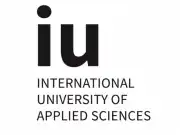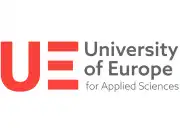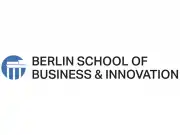Health programs in Germany
- Brief overview of Health programs in Germany
- Features of Health programs in Germany
- Advantages of Health programs in Germany
- Disadvantages of Health programs in Germany
- German universities offering Health programs
- Admission requirements for Health programs in Germany
- Documents for admission to Health programs in Germany
- Tuition costs for Health programs in Germany
- Scholarships and grants for Health programs in Germany
- Career prospects after Health programs in Germany
- Is it worth going to study Health programs in Germany?
- Frequently Asked Questions

Master - Industrial and Organizational Psychology
IU International University of Applied SciencesThe workplace of the future is arrived. The professional landscape has shifted as a result of digitalization, AI tools, and hybrid work patterns. There are benefits and drawbacks to this trend, as some older occupations are being phased out and new ones created.
As a result of the increased…

Master - International Healthcare Management
IU International University of Applied SciencesRecent news coverage has focused heavily on the healthcare business, and it's easy to see that significant shifts are being made to prepare for the future. The need for youthful, up-to-date managers who have a firm grasp of the digital world is apparent in nearly every sector of the healthcare industry.
The…

Master - International Healthcare Management (1 year)
IU International University of Applied SciencesIn light of recent media coverage, it's easy to see that the healthcare business is undergoing significant change in response to emerging issues. It is now more obvious than ever that the healthcare industry is both essential and exciting, and that new managers savvy to the ways of the digital age…

Master - Industrial and Organizational Psychology (1 year)
IU International University of Applied SciencesJobs of the future already exist. There is now a new and diverse professional world as a result of digitalization, AI tools, and hybrid work patterns. Some old jobs are being eliminated, but others are being created, thus there are advantages and disadvantages to this.
Businesses and their…

Bachelor of Science - Health Management
University of Europe for Applied Sciences - GermanyThe field of health management bridges the gap between business and healthcare by focusing on the particular difficulties associated with running healthcare organizations, services, and resources. Our extensive curriculum will enable you to succeed in a range of roles within the healthcare business,…

Master of Business Administration - Health and Safety Leadership
University of Europe for Applied Sciences - GermanyThe University of Europe for Applied Sciences' MBA in Health & Safety Leadership program is tailored to provide individuals with the necessary abilities to competently handle health and safety issues in the workplace. Our primary goal is to provide first-rate management training so that our clients…

Master of Business Administration - Health Service Management
University of Europe for Applied Sciences - GermanyHealth service management experts and forward-thinking executives are in high demand due to the ever-changing nature of the healthcare industry. The University of Europe for Applied Sciences' MBA Health Service Management program is tailored to provide students with the knowledge and abilities to…

Master of Science - International Public Health Management
University of Europe for Applied Sciences - GermanyAn international, multidisciplinary, and research-oriented management education for public health sector planning, development, and control duties is the foundation of the Master of Science degree program in International Public Health Management. Students enrolled in the degree program will gain…

Master of Science - Prevention & Therapy Management
University of Europe for Applied Sciences - GermanyStudents enrolled in the Master of Science in Prevention and Therapy Management program at UE will be prepared to play critical roles in the organization, management, and strategic planning of prevention and therapy programs for both inpatients and outpatients. These include a wide range of businesses…

Bachelor of Science - Psychology (Psychosocial Disciplines)
Berlin School of Business and InnovationDegree awarded by International Telematic University UNINETTUNO
BSc in Psychology - Psychosocial Disciplines (Corso di Laurea Triennale in Psicologia - Discipline) course integrates knowledge from the history of humanistic and educational sciences with scientific understanding from…
Brief overview of Health programs in Germany
Germany is rightfully considered one of the most advanced countries in Europe in the field of healthcare and scientific research. Higher education institutions in the country offer a wide range of academic programs in health for international students. These programs cover both fundamental and applied areas - from public health and medical informatics to physiotherapy, nursing, nutrition science, and healthcare management.
One of the features of the German education system is its focus on practice-oriented learning. This means that students not only study theory but also actively participate in real projects, complete internships in clinics, research centers, and government institutions. This approach ensures high-quality professional training and opens up broad career prospects.
Thanks to the large number of programs in English and support from universities, Germany is becoming increasingly attractive to students from around the world who want to get an education in the field of science and healthcare.
Features of Health programs in Germany
Educational programs in the field of health in Germany have a number of unique features that distinguish them from similar programs in other countries:
- Interdisciplinarity. German programs combine knowledge from medicine, biology, psychology, sociology, as well as management and IT, which is especially relevant in the context of healthcare digitalization.
- Innovation and technology. Modern laboratories, simulation centers, VR modules, and telemedicine are actively integrated into the educational process.
- Research component. Students have the opportunity to work on current research and participate in international projects in healthcare.
- Close connection with medical practice. Mandatory clinical internships take place in university hospitals and research institutes.
- Internationality. Many programs are taught in English, and universities actively accept students from Europe, Asia, CIS, Middle East and Africa.
This combination of theoretical depth, practical experience and international context makes studying in Germany truly unique and prestigious.
Advantages of Health programs in Germany
Studying in Germany for health programs has many obvious advantages:
- Affordability of education. There are no tuition fees at public universities in Germany, making quality education in Europe accessible to students from different countries.
- High academic level. German universities regularly rank high in world rankings, especially in medical and biomedical fields.
- Diploma prestige. Graduates of German universities are in demand in the international job market. The diploma is recognized throughout Europe and beyond.
- Practical orientation. The education includes mandatory internships, laboratory and clinical modules, work on case studies and projects.
- International environment. German universities host students from more than 180 countries worldwide. This creates a rich multicultural environment and promotes global thinking.
- Student support. Universities offer language courses, career counseling, mentoring programs and assistance with adaptation.
Thus, studying in Germany is not only a path to a prestigious profession but also an important personal and professional experience.
Disadvantages of Health programs in Germany
Despite many advantages, international students may face certain difficulties when studying in Germany:
- High competition. Especially for medical programs. Solution - apply to several universities, don't limit yourself to capital universities, and strengthen your portfolio (volunteering, certificates, motivation letter).
- Need for German language knowledge. Even if the program is in English, clinical practice and daily life require at least B1-B2 level. Solution - start learning the language in advance, take preparatory courses.
- Adaptation to a new education system and life. Germany differs from other countries in academic freedom, student independence and high responsibility. Solution - use the support of university international offices, mentors, student communities.
- Bureaucratic difficulties. Issues with visas, registration, insurance, housing. Solution - study step-by-step instructions in advance, use services like DAAD, uni-assist, local consultants.
It's important to remember: all difficulties can be overcome with proper preparation and support. Most students adapt quickly and find in Germany not only education but also a second home.
German universities offering Health programs
Germany has an impressive list of universities offering quality health programs. Below are examples of leading institutions:
| University | City | Main Directions |
|---|---|---|
| Charité – Universitätsmedizin Berlin | Berlin | Medicine, public health, clinical research |
| University of Heidelberg | Heidelberg | Biomedicine, molecular medicine, pharmacology |
| Ludwig-Maximilians-Universität München (LMU) | Munich | Healthcare management, medical statistics, epidemiology |
| University of Freiburg | Freiburg | Nutrition science, nursing, preventive medicine |
| Hochschule Fulda | Fulda | Applied health sciences, geriatrics, community health |
| Universität Bielefeld | Bielefeld | Public health, healthcare and management |
The choice of university depends on specialization, language of instruction and student preferences.
Admission requirements for Health programs in Germany
For admission to bachelor's or master's programs in healthcare, you need:
- School certificate or diploma recognized by the German system (through APS or uni-assist).
- Language certificate:
- For programs in German - TestDaF, DSH, telc.
- For programs in English - IELTS (6.0–7.0), TOEFL (about 80+ points).
- Motivation letter. Explain in detail why you chose this field, university and Germany.
- CV. In Europass format.
- Sometimes - recommendations from teachers or employers.
- Exam results. Some universities require TestAS for bachelor's programs.
Admission to Germany requires preparation, but clear procedures make the process transparent and accessible.
Documents for admission to Health programs in Germany
The list of required documents may vary slightly but usually includes:
- Certified copies of diploma and transcript (with translation).
- Language certificates.
- CV and motivation letter.
- Passport + biometric photo.
- Health insurance (when applying for visa and enrollment).
- Proof of financial resources (about €11,208 per year in account).
- TestAS results (if required).
- Registration with uni-assist (for most universities).
Make sure all documents are submitted before the deadline and meet the requirements of the specific university.
Tuition costs for Health programs in Germany
Most public universities in Germany do not charge tuition fees. However, students need to pay a semester fee (Semesterbeitrag), which ranges from €250 to €500 and includes:
- public transport pass,
- access to libraries and gyms,
- student union services and administrative fees.
Costs depending on university type:
| University Type | Tuition | Semester Fee |
|---|---|---|
| Public University | Free | €250–500 |
| University of Applied Sciences (FH) | Free | €300–600 |
| Private University | €5,000–15,000 per year | Included or additional |
Additional expenses:
- Accommodation: €300–700/month
- Food, insurance, transport: €200–400/month
Scholarships and grants for Health programs in Germany
Financial support is available through:
- DAAD: largest scholarship fund for international students. Offers grants for study, research, summer courses.
- Deutschlandstipendium: government program, €300/month, can be combined with other support.
- Erasmus+: for exchange semesters in other EU countries, including coverage of expenses.
- Foundations: Konrad-Adenauer-Stiftung, Heinrich Böll Stiftung and others support talented students.
Scholarship amounts: €300–1,200 per month. Selection criteria include academic performance, motivation and social engagement.
Career prospects after Health programs in Germany
After completing a health program, graduates can:
- work in clinics, hospitals, laboratories;
- engage in scientific research or teaching;
- work in healthcare management, pharmaceuticals, NGOs;
- get jobs in international organizations (WHO, UNICEF, Red Cross);
- continue studies for PhD.
Average starting salary is €3,000 to €4,500 per month, depending on region and specialization. Germany has a shortage of medical staff, especially in care and rehabilitation, which increases employment chances.
Is it worth going to study Health programs in Germany?
If you're looking for a stable, in-demand and socially significant profession - the answer is definitely yes. Education in Germany opens doors to the European healthcare system, offers quality knowledge and practical opportunities.
At the same time, you get access to top universities, international experience and employment prospects both in the EU and beyond. The main thing is to prepare thoroughly, learn the language and be ready for academic challenges.
Frequently Asked Questions
1. Can I enroll in a program without knowing German?
Yes, if the program is in English. However, knowledge of German will be a big plus for practice and daily life.
2. Which specializations are most in demand?
Nursing, physiotherapy, public health, medical informatics and biomedicine.
3. Can I stay in Germany after graduation?
Yes, graduates can stay for up to 18 months to look for work and then apply for a Blue Card or permanent residence.
4. Are there age restrictions?
No formal restrictions, but scholarships often prefer candidates under 35.
5. What are the chances of getting a scholarship?
Quite high with good academic performance and motivation. The main thing is to prepare the application package thoroughly and submit on time.